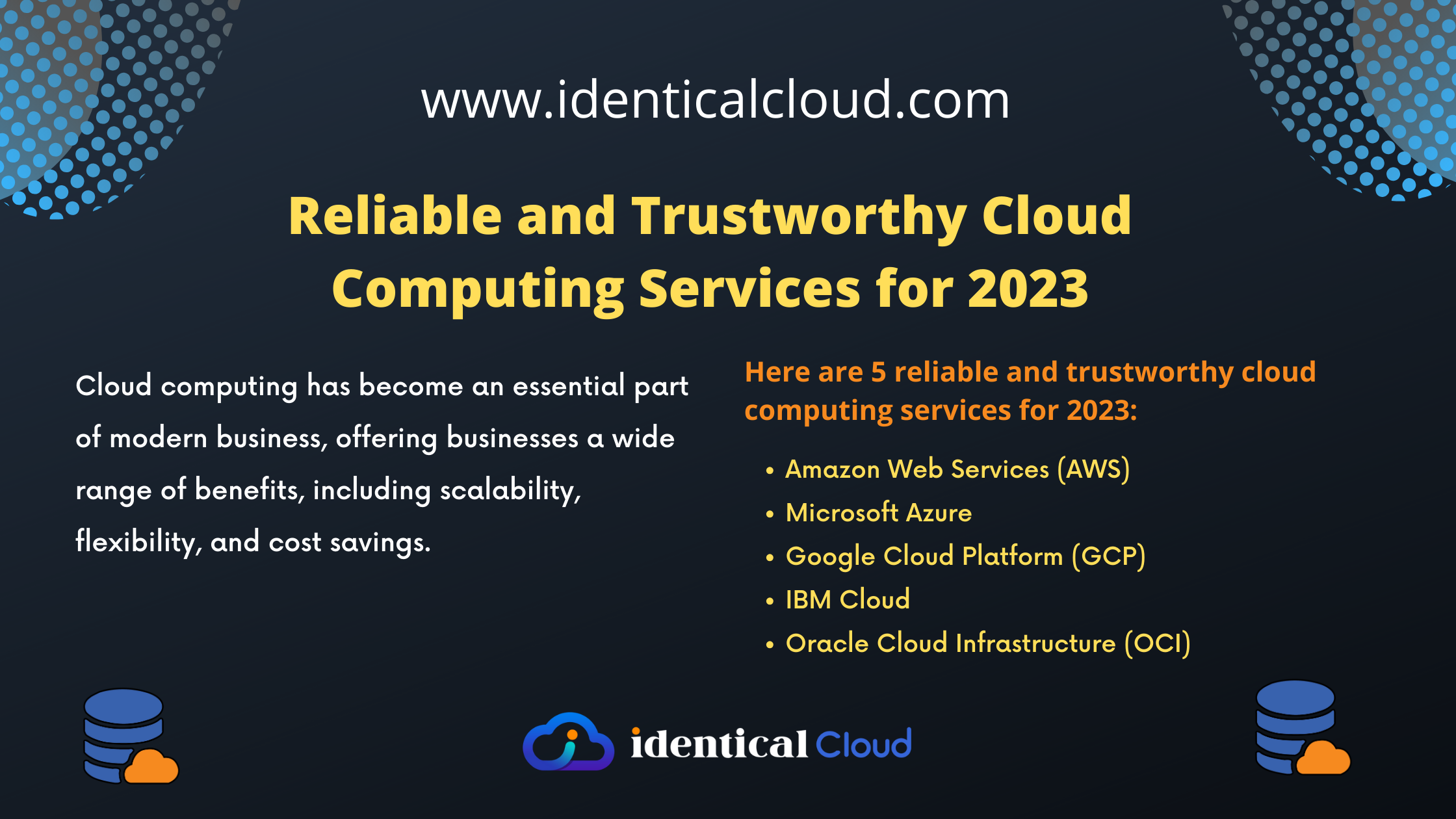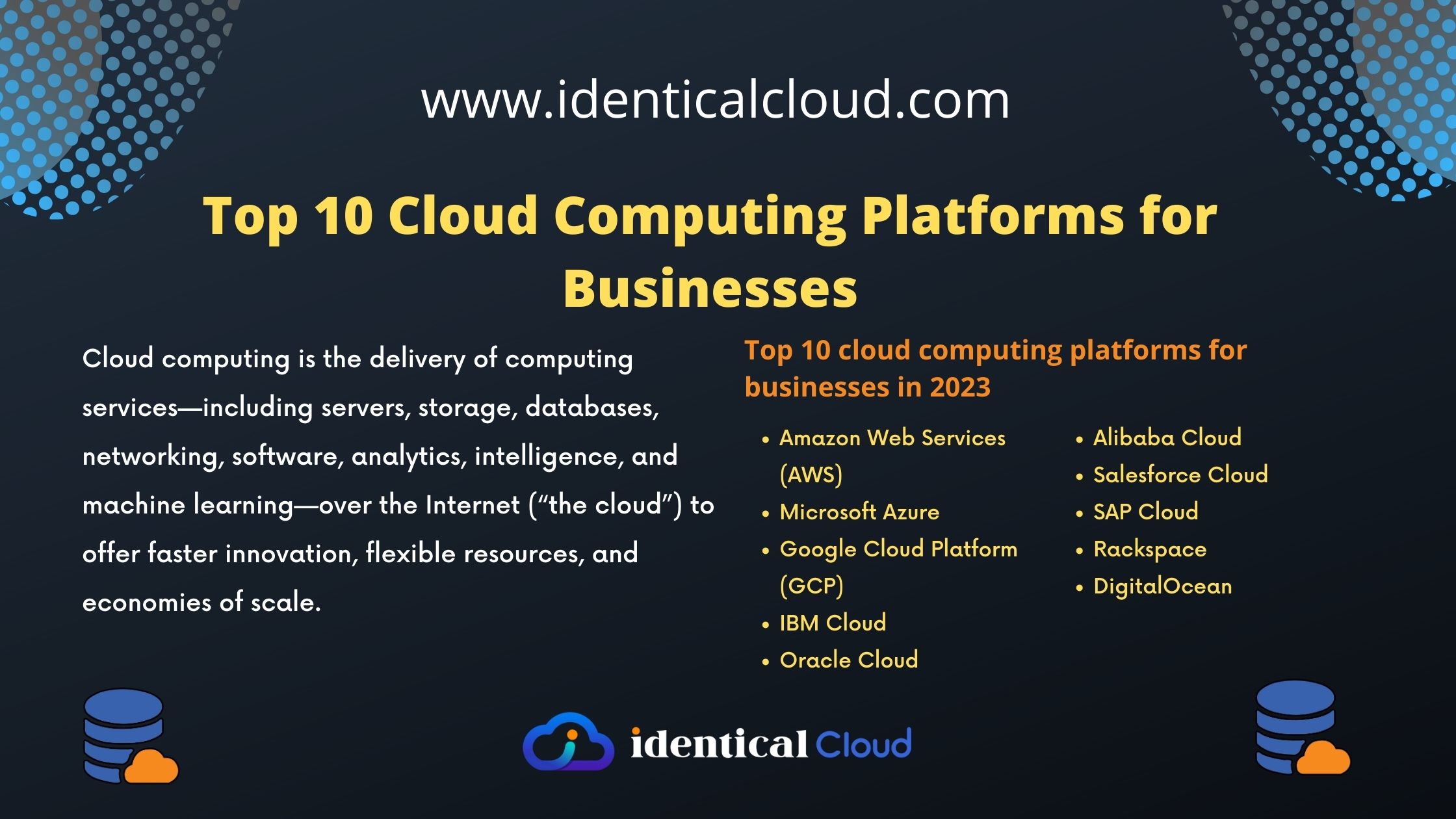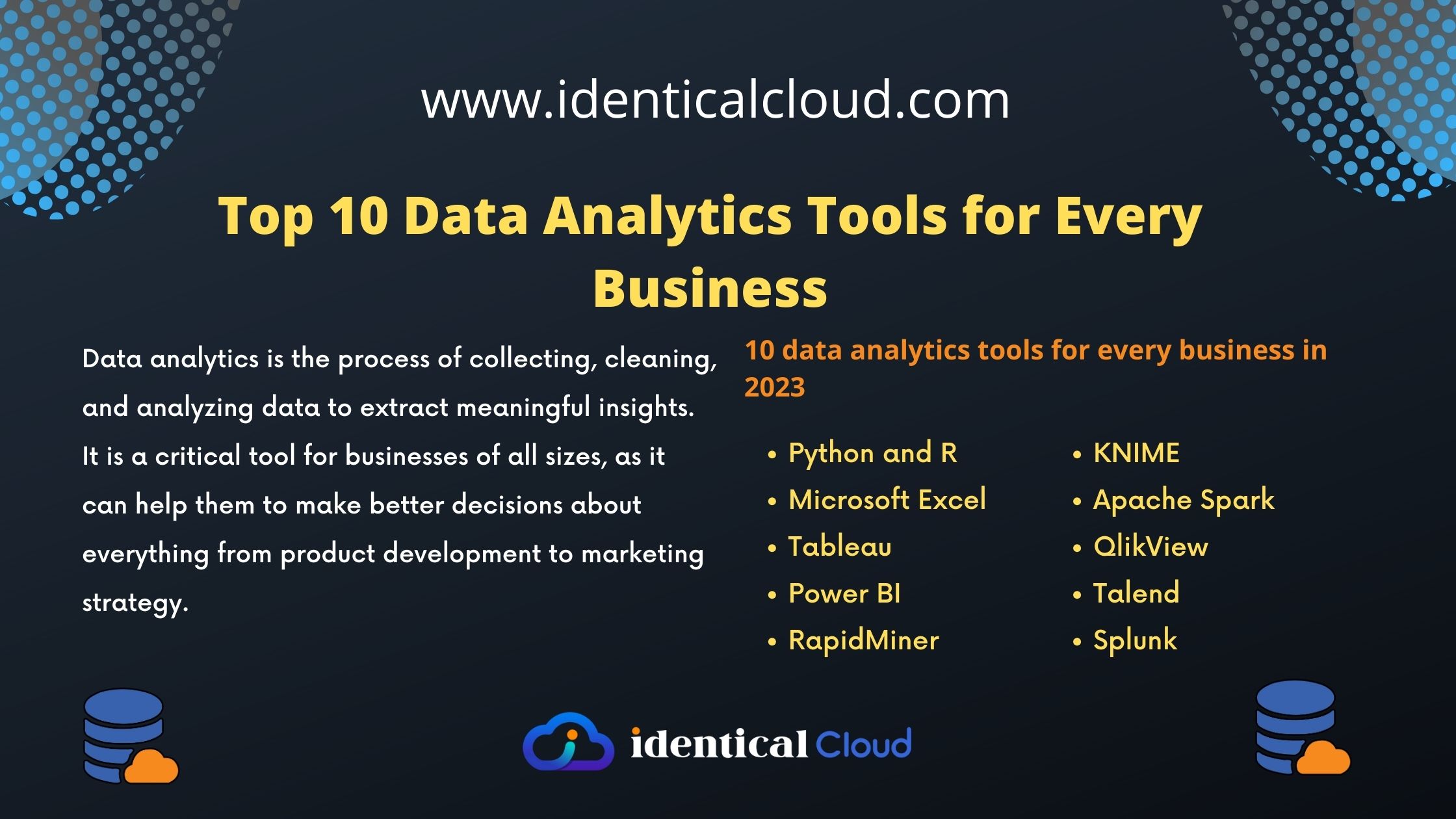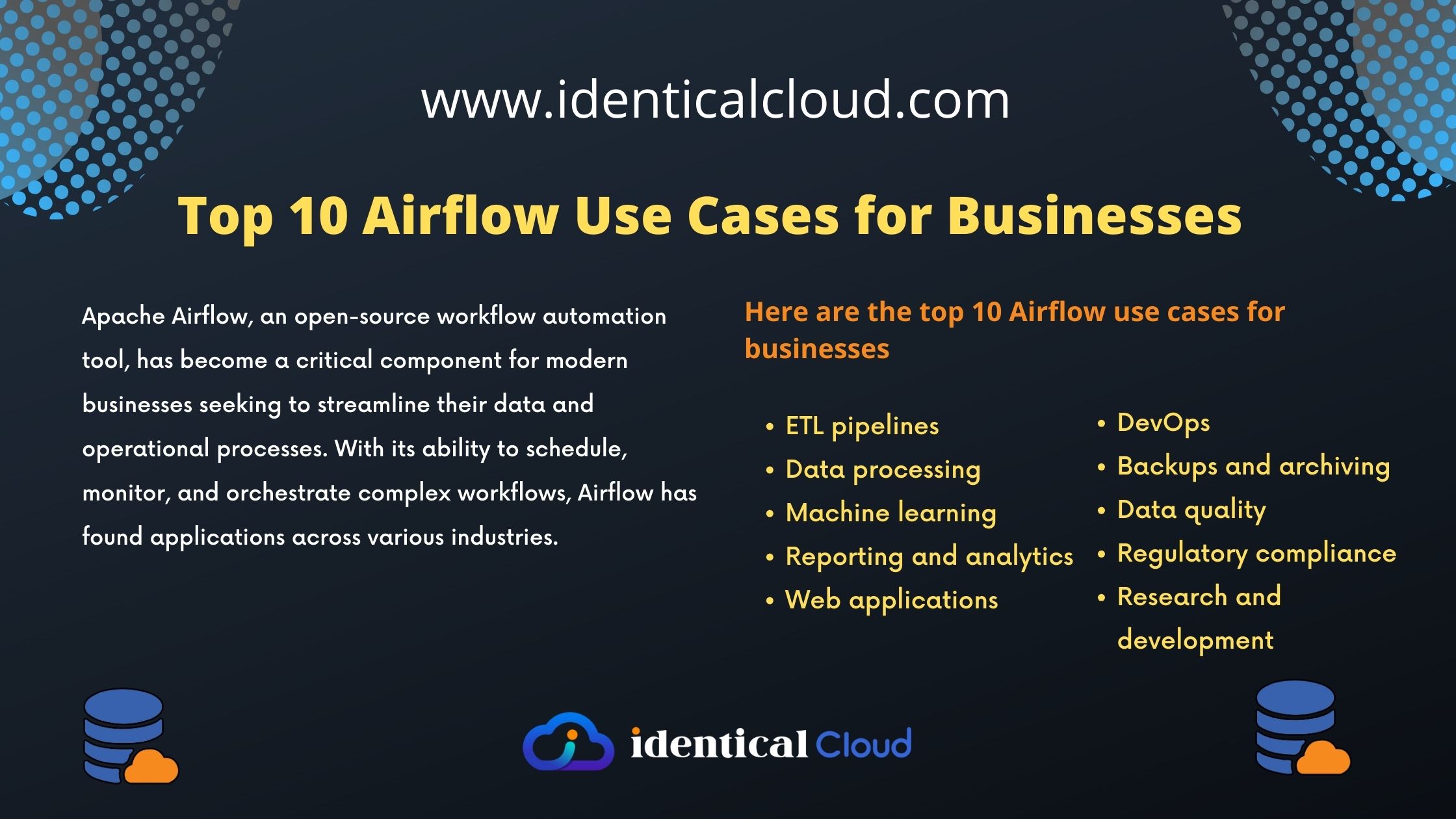
5 Reliable and Trustworthy Cloud Computing Services for 2023
5 Reliable and Trustworthy Cloud Computing Services for 2023
Cloud computing has become an essential part of modern business, offering businesses a wide range of benefits, including scalability, flexibility, and cost savings. However, with so many different cloud computing providers available, it can be difficult to know where to start.
Here are 5 reliable and trustworthy cloud computing services for 2023:
Amazon Web Services (AWS)
Amazon Web Services (AWS) is the leading cloud computing platform, offering a broad range of services, including computing, storage, networking, databases, analytics, machine learning, and the Internet of Things (IoT). AWS is used by millions of customers around the world, including startups, Fortune 500 companies, and government agencies.
AWS offers a wide range of features and functionality, making it a good choice for businesses of all sizes and industries.
The most popular AWS services include:
- Amazon Elastic Compute Cloud (EC2): EC2 provides scalable computing capacity in the cloud. You can use EC2 to run a wide range of applications, from simple websites to complex enterprise applications.
- Amazon Simple Storage Service (S3): S3 is an object storage service that offers infinite scalability, data availability, security and performance. You can use S3 to store and retrieve any type of data, including web and mobile application data, static and dynamic websites, analytics data, log files, and more.
- Amazon Relational Database Service (RDS): RDS is a managed relational database service that supports a variety of database engines, including MySQL, PostgreSQL, Oracle Database, and Microsoft SQL Server. You can use RDS to create, deploy, and scale relational databases in the cloud.
- Amazon DynamoDB is a fully managed, multi-region, multi-master, durable NoSQL database with built-in security, backup and restore, and in-memory caching for internet-scale applications.
AWS is also known for its security and compliance features. AWS offers a wide range of security features to help protect your data and applications, including encryption, access control, and intrusion detection. AWS also offers a variety of compliance certifications, including PCI DSS, HIPAA, and FedRAMP.
Benefits of using AWS
There are many benefits to using AWS, including:
- Scalability: AWS offers scalable computing capacity, so you can easily scale your applications up or down as needed.
- Reliability: AWS is a highly reliable platform, with a proven track record of uptime and performance.
- Security: AWS offers a wide range of security features to help protect your data and applications.
- Compliance: AWS offers a variety of compliance certifications, so you can be confident that your data is protected and compliant with industry regulations.
- Broad range of services: AWS offers a broad range of services that can be used to build, deploy, and manage a wide range of applications.
- Affordable pricing: AWS offers affordable pricing, with a variety of pricing options to choose from.
How to get started with AWS
Getting started with AWS is easy. You can create an AWS account and start using AWS services for free. AWS also offers a variety of tutorials and documentation to help you get started.
Here are some tips for getting started with AWS:
- Start with the basics: Learn about the basic AWS services, such as EC2, S3, and RDS.
- Experiment with different services: AWS offers a wide range of services, so experiment with different services to see which ones are right for you.
- Use AWS tutorials and documentation: AWS offers a variety of tutorials and documentation to help you get started with AWS services.
- Ask for help: If you need help, you can contact AWS support or ask for help from the AWS community.
AWS is a powerful cloud computing platform that can help businesses of all sizes to grow and succeed. With its wide range of services, scalability, reliability, security, and compliance features, AWS is a good choice for businesses of all sizes and industries.
Microsoft Azure
Microsoft Azure is a cloud computing platform from Microsoft that offers a broad range of services, including computing, storage, networking, databases, analytics, machine learning, and artificial intelligence (AI). Azure is a good choice for businesses that are already using Microsoft products and services.
Azure offers a wide range of features and functionality, making it a good choice for businesses of all sizes and industries.
The most popular Azure services include:
- Azure Virtual Machines (VMs): Azure VMs provide on-demand, scalable computing resources in the cloud. You can use Azure VMs to run a wide range of applications, from simple websites to complex enterprise applications.
- Azure Blob Storage: Azure Blob Storage is an object storage service that offers highly scalable, secure, and durable storage for a variety of data types, including text, images, videos, and audio files.
- Azure SQL Database: Azure SQL Database is a managed relational database service that supports the Transact-SQL (T-SQL) programming language. You can use Azure SQL Database to create, deploy, and manage relational databases in the cloud.
- Azure Cognitive Services: Azure Cognitive Services are a collection of AI services that can be used to add intelligence to your applications. You can use Azure Cognitive Services to add features such as image recognition, natural language processing, and speech recognition to your applications.
Azure is also known for its security and compliance features. Azure offers a wide range of security features to help protect your data and applications, including encryption, access control, and intrusion detection. Azure also offers a variety of compliance certifications, including PCI DSS, HIPAA, and FedRAMP.
Benefits of using Azure
There are many benefits to using Azure, including:
- Scalability: Azure offers scalable computing resources, so you can easily scale your applications up or down as needed.
- Reliability: Azure is a highly reliable platform, with a proven track record of uptime and performance.
- Security: Azure offers a wide range of security features to help protect your data and applications.
- Compliance: Azure offers a variety of compliance certifications, so you can be confident that your data is protected and compliant with industry regulations.
- Broad range of services: Azure offers a broad range of services that can be used to build, deploy, and manage a wide range of applications.
- Integration with Microsoft products and services: Azure is tightly integrated with other Microsoft products and services, such as Office 365 and Dynamics 365.
- Affordable pricing: Azure offers affordable pricing, with a variety of pricing options to choose from.
How to get started with Azure
Getting started with Azure is easy. You can create an Azure account and start using Azure services for free. Azure also offers a variety of tutorials and documentation to help you get started.
Here are some tips for getting started with Azure:
- Start with the basics: Learn about the basic Azure services, such as Azure VMs, Azure Blob Storage, Azure SQL Database, and Azure Cognitive Services.
- Experiment with different services: Azure offers a wide range of services, so experiment with different services to see which ones are right for you.
- Use Azure tutorials and documentation: Azure offers a variety of tutorials and documentation to help you get started with Azure services.
- Ask for help: If you need help, you can contact Azure support or ask for help from the Azure community.
Azure is a powerful cloud computing platform that can help businesses of all sizes to grow and succeed. With its wide range of services, scalability, reliability, security, compliance features, and integration with Microsoft products and services, Azure is a good choice for businesses of all sizes and industries.
Google Cloud Platform (GCP)
Google Cloud Platform (GCP) is a cloud computing platform from Google that offers a broad range of services, including computing, storage, networking, databases, analytics, machine learning, and artificial intelligence (AI). GCP is a good choice for businesses that are looking for a cloud platform with a focus on innovation and security.
GCP offers a wide range of features and functionality, making it a good choice for businesses of all sizes and industries.
The most popular GCP services include:
- Compute Engine: Compute Engine provides scalable computing capacity in the cloud. You can use Compute Engine to run a wide range of applications, from simple websites to complex enterprise applications.
- Cloud Storage: Cloud Storage is an object storage service that offers infinite scalability, data availability, security and performance. You can use Cloud Storage to store and retrieve any type of data, including web and mobile application data, static and dynamic websites, analytics data, log files, and more.
- Cloud SQL: Cloud SQL is a managed relational database service that supports a variety of database engines, including MySQL, PostgreSQL, and SQL Server. You can use Cloud SQL to create, deploy, and scale relational databases in the cloud.
- Cloud Dataproc: Cloud Dataproc is a managed Hadoop and Spark service that makes it easy to run and manage Apache Spark and Apache Hadoop clusters in the cloud.
- Cloud AI Platform: Cloud AI Platform is a suite of AI services that enables you to build, train, and deploy machine learning models. Cloud AI Platform includes a variety of services, such as TensorFlow, Cloud AutoML, and Cloud Vision AI.
GCP is also known for its security and compliance features. GCP offers a wide range of security features to help protect your data and applications, including encryption, access control, and intrusion detection. GCP also offers a variety of compliance certifications, including PCI DSS, HIPAA, and FedRAMP.
Benefits of using GCP
There are many benefits to using GCP, including:
- Scalability: GCP offers scalable computing resources, so you can easily scale your applications up or down as needed.
- Reliability: GCP is a highly reliable platform, with a proven track record of uptime and performance.
- Security: GCP offers a wide range of security features to help protect your data and applications.
- Compliance: GCP offers a variety of compliance certifications, so you can be confident that your data is protected and compliant with industry regulations.
- Broad range of services: GCP offers a broad range of services that can be used to build, deploy, and manage a wide range of applications.
- Innovation: GCP is constantly innovating and adding new services.
- Affordable pricing: GCP offers affordable pricing, with a variety of pricing options to choose from.
How to get started with GCP
Getting started with GCP is easy. You can create a GCP account and start using GCP services for free. GCP also offers a variety of tutorials and documentation to help you get started.
Here are some tips for getting started with GCP:
- Start with the basics: Learn about the basic GCP services, such as Compute Engine, Cloud Storage, Cloud SQL, and Cloud Dataproc.
- Experiment with different services: GCP offers a wide range of services, so experiment with different services to see which ones are right for you.
- Use GCP tutorials and documentation: GCP offers a variety of tutorials and documentation to help you get started with GCP services.
- Ask for help: If you need help, you can contact GCP support or ask for help from the GCP community.
GCP is a powerful cloud computing platform that can help businesses of all sizes to grow and succeed. With its wide range of services, scalability, reliability, security, compliance features, focus on innovation, and affordable pricing, GCP is a good choice for businesses of all sizes and industries.
IBM Cloud
IBM Cloud is a cloud computing platform from IBM that offers a broad range of services, including computing, storage, networking, databases, analytics, machine learning, and the Internet of Things (IoT). IBM Cloud is a good choice for businesses that are looking for a cloud platform with a focus on enterprise-grade solutions.
IBM Cloud offers a wide range of features and functionality, making it a good choice for businesses of all sizes and industries.
The most popular IBM Cloud services include:
- IBM Cloud Bare Metal Servers: IBM Cloud Bare Metal Servers offer high-performance computing resources that are ideal for running demanding applications such as enterprise resource planning (ERP) systems and customer relationship management (CRM) systems.
- IBM Cloud Object Storage: IBM Cloud Object Storage is a highly scalable and durable object storage service that can be used to store any type of data, including text, images, videos, and audio files.
- IBM Cloud SQL: IBM Cloud SQL is a managed relational database service that supports a variety of database engines, including MySQL, PostgreSQL, and Oracle Database. You can use IBM Cloud SQL to create, deploy, and scale relational databases in the cloud.
- IBM Cloud Watson: IBM Cloud Watson is a suite of AI services that enables you to build, train, and deploy machine learning models. IBM Cloud Watson includes a variety of services, such as natural language processing, image recognition, and speech recognition.
IBM Cloud is also known for its security and compliance features. IBM Cloud offers a wide range of security features to help protect your data and applications, including encryption, access control, and intrusion detection. IBM Cloud also offers a variety of compliance certifications, including PCI DSS, HIPAA, and FedRAMP.
Benefits of using IBM Cloud
There are many benefits to using IBM Cloud, including:
- Scalability: IBM Cloud offers scalable computing resources, so you can easily scale your applications up or down as needed.
- Reliability: IBM Cloud is a highly reliable platform, with a proven track record of uptime and performance.
- Security: IBM Cloud offers a wide range of security features to help protect your data and applications.
- Compliance: IBM Cloud offers a variety of compliance certifications, so you can be confident that your data is protected and compliant with industry regulations.
- Broad range of services: IBM Cloud offers a broad range of services that can be used to build, deploy, and manage a wide range of applications.
- Focus on enterprise-grade solutions: IBM Cloud is focused on providing enterprise-grade solutions that meet the needs of large businesses and organizations.
- Affordable pricing: IBM Cloud offers affordable pricing, with a variety of pricing options to choose from.
How to get started with IBM Cloud
Getting started with IBM Cloud is easy. You can create an IBM Cloud account and start using IBM Cloud services for free. IBM Cloud also offers a variety of tutorials and documentation to help you get started.
Here are some tips for getting started with IBM Cloud:
- Start with the basics: Learn about the basic IBM Cloud services, such as IBM Cloud Bare Metal Servers, IBM Cloud Object Storage, IBM Cloud SQL, and IBM Cloud Watson.
- Experiment with different services: IBM Cloud offers a wide range of services, so experiment with different services to see which ones are right for you.
- Use IBM Cloud tutorials and documentation: IBM Cloud offers a variety of tutorials and documentation to help you get started with IBM Cloud services.
- Ask for help: If you need help, you can contact IBM Cloud support or ask for help from the IBM Cloud community.
IBM Cloud is a powerful cloud computing platform that can help businesses of all sizes to grow and succeed. With its wide range of services, scalability, reliability, security, compliance features, focus on enterprise-grade solutions, and affordable pricing, IBM Cloud is a good choice for businesses of all sizes and industries.
Oracle Cloud Infrastructure (OCI)
Oracle Cloud Infrastructure (OCI) is a cloud computing platform from Oracle that offers a broad range of services, including computing, storage, networking, databases, analytics, machine learning, and artificial intelligence (AI). OCI is a good choice for businesses that are already using Oracle products and services, as well as businesses that are looking for a cloud platform with a focus on performance, security, and reliability.
OCI offers a wide range of features and functionality, making it a good choice for businesses of all sizes and industries.
The most popular OCI services include:
- Compute Engine: Compute Engine provides scalable computing resources in the cloud. You can use Compute Engine to run a wide range of applications, from simple websites to complex enterprise applications.
- Block Storage: Block Storage is a durable and scalable high-performance block storage service for OCI Compute Engine instances. Block Storage is ideal for workloads that require consistent performance and low latency, such as databases, file systems, and application boot volumes.
- Object Storage: Object Storage is a highly scalable and durable object storage service that can be used to store any type of data, including text, images, videos, and audio files. Object Storage is ideal for workloads that require high availability and low cost, such as archival and backup.
- Autonomous Database: Autonomous Database is a fully managed, self-driving, and self-securing database service that automates many of the tasks associated with database administration, such as provisioning, scaling, patching, and backing up.
- Analytics Cloud: Analytics Cloud is a suite of cloud-based analytics services that enables you to collect, process, analyze, and visualize data to gain insights into your business. Analytics Cloud includes a variety of services, such as Data Warehouse, Big Data Service, and Data Science Platform.
OCI is also known for its performance, security, and reliability. OCI offers a variety of features to help improve the performance of your applications, such as high-performance computing (HPC) instances and bare metal servers. OCI also offers a variety of security features to help protect your data and applications, such as encryption, access control, and intrusion detection. Additionally, OCI is built on Oracle’s enterprise-grade infrastructure, which provides high reliability and availability.
Benefits of using OCI
There are many benefits to using OCI, including:
- Performance: OCI offers high-performance computing (HPC) instances and bare metal servers that can be used to run demanding applications.
- Security: OCI offers a variety of security features to help protect your data and applications, such as encryption, access control, and intrusion detection.
- Reliability: OCI is built on Oracle’s enterprise-grade infrastructure, which provides high reliability and availability.
- Broad range of services: OCI offers a broad range of services that can be used to build, deploy, and manage a wide range of applications.
- Integration with Oracle products and services: OCI is tightly integrated with other Oracle products and services, such as Oracle Database and Oracle E-Business Suite.
- Affordable pricing: OCI offers affordable pricing, with a variety of pricing options to choose from.
How to get started with OCI
Getting started with OCI is easy. You can create an OCI account and start using OCI services for free. OCI also offers a variety of tutorials and documentation to help you get started.
Here are some tips for getting started with OCI:
- Start with the basics: Learn about the basic OCI services, such as Compute Engine, Block Storage, Object Storage, Autonomous Database, and Analytics Cloud.
- Experiment with different services: OCI offers a wide range of services, so experiment with different services to see which ones are right for you.
- Use OCI tutorials and documentation: OCI offers a variety of tutorials and documentation to help you get started with OCI services.
- Ask for help: If you need help, you can contact OCI support or ask for help from the OCI community.
Oracle Cloud Infrastructure (OCI) is a powerful cloud computing platform that can help businesses of all sizes to grow and succeed. With its focus on performance, security, reliability, and integration with Oracle products and services, OCI is a good choice for businesses of all sizes and industries.
How to choose the right cloud computing service for your business
When choosing a cloud computing service, it is important to consider your specific needs and requirements. Here are some factors to consider:
- Services offered: Make sure the cloud computing service offers the services that you need.
- Pricing: Compare the pricing of different cloud computing services to find the best deal.
- Performance: Choose a cloud computing service that offers good performance and reliability.
- Security: Choose a cloud computing service that offers good security features.
- Support: Choose a cloud computing service that offers good technical support.
Cloud computing is a powerful tool that can help businesses of all sizes to grow and succeed. However, choosing the right cloud computing service is essential to getting the most out of cloud computing.
The 5 cloud computing services listed above are all reliable and trustworthy options. When choosing a cloud computing service, be sure to consider your specific needs and requirements to find the best fit for your business.









